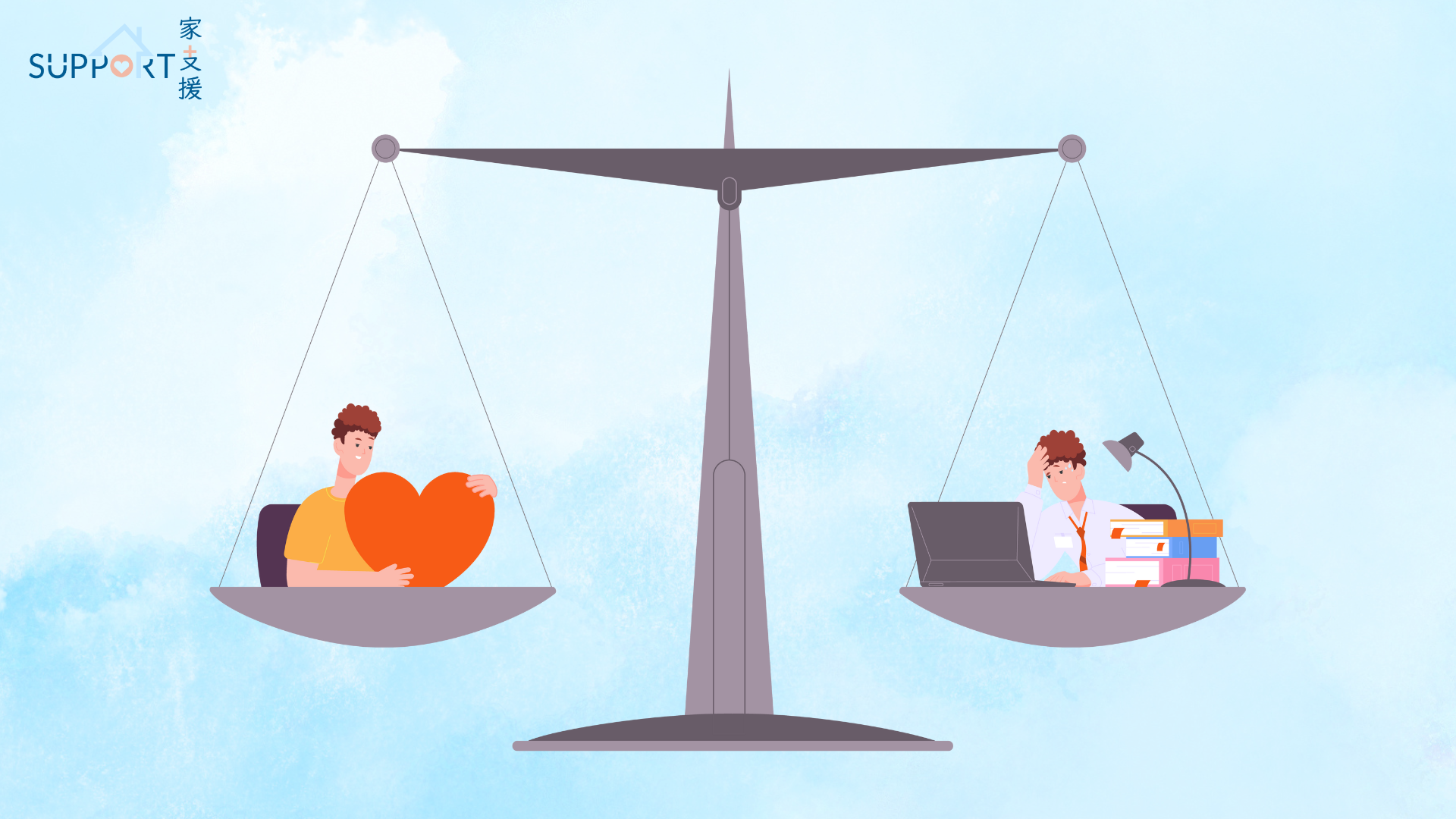
Returning to work aftercancer can be a daunting task, therefore adequate preparation is important before returning.
1. Ease your return to work
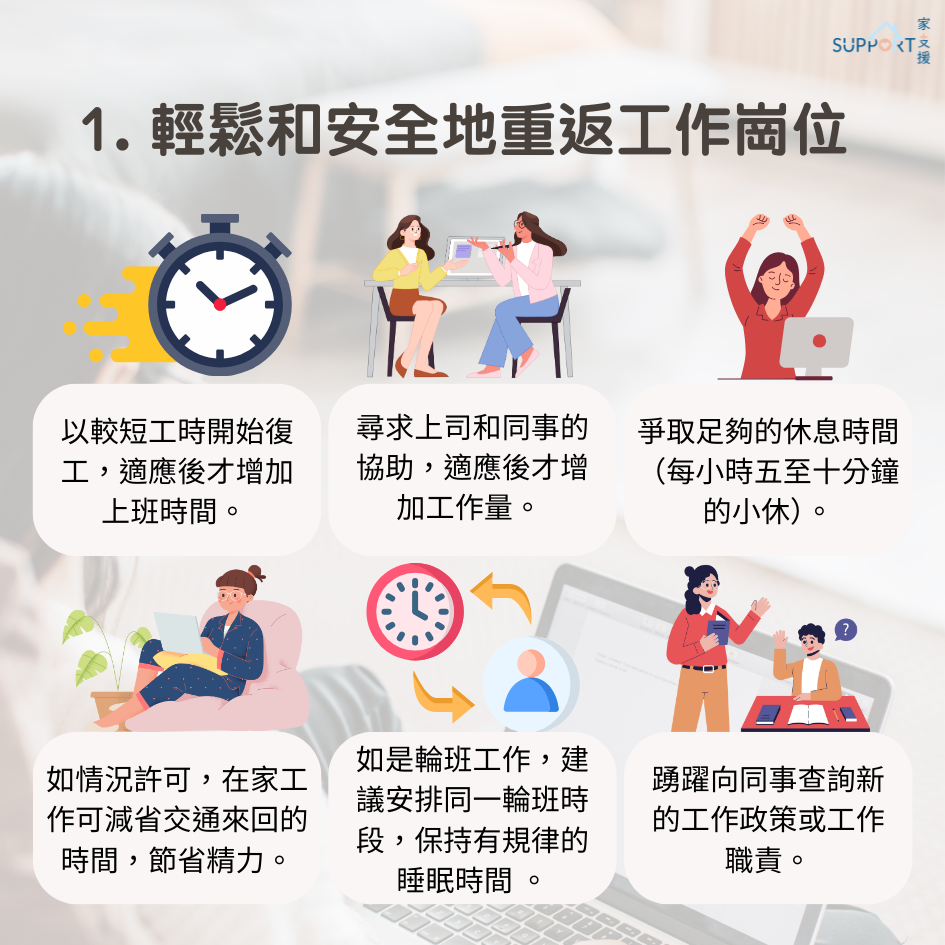
- Begin by working fewer hours when you first go back. Then, over 1 or 2 weeks build up to your normal hours. This can help build confidence to do your job well. Talk to your employer, most will be supportive.
- Ask your employer if someone can assist with some of your tasks until you are back to full-time hours.
- Work shifts that let you avoid rush hour, or work from home if you are able to. This will allow you to save time and energy travelling for work. If you do shift work, you can request to work the same shift to help you maintain a more regular sleep schedule while you are recovering from cancer treatment.
- Take enough rest breaks. Try to take one short break (5-10 minutes) for each hour worked instead of one longer break. This will allow you to save your energy and build your strength to work your normal hours.
- Find a short-term “job-buddy” for your first week back to work. This person can help update you on new policies or job duties. Choose a job-buddy that you know you can work with and ask them if they are okay helping you during your first week back.
2. Keep good communication with employer and co-workers

- Keep your employer informed while you are off work and update them about your planned return. This helps them plan better.
- Talk to managers and co-workers in advance about support on return to work.
- Keep in touch with your co-workers friends while away from work. This helps to:
- Make you feel like part of your workplace, reducing isolation.
- Keep you up-to-date with what is going on at work (like new staff or policies)
- Reduce feelings of stress or feeling overwhelmed when you return.

3. Managing work after cancer
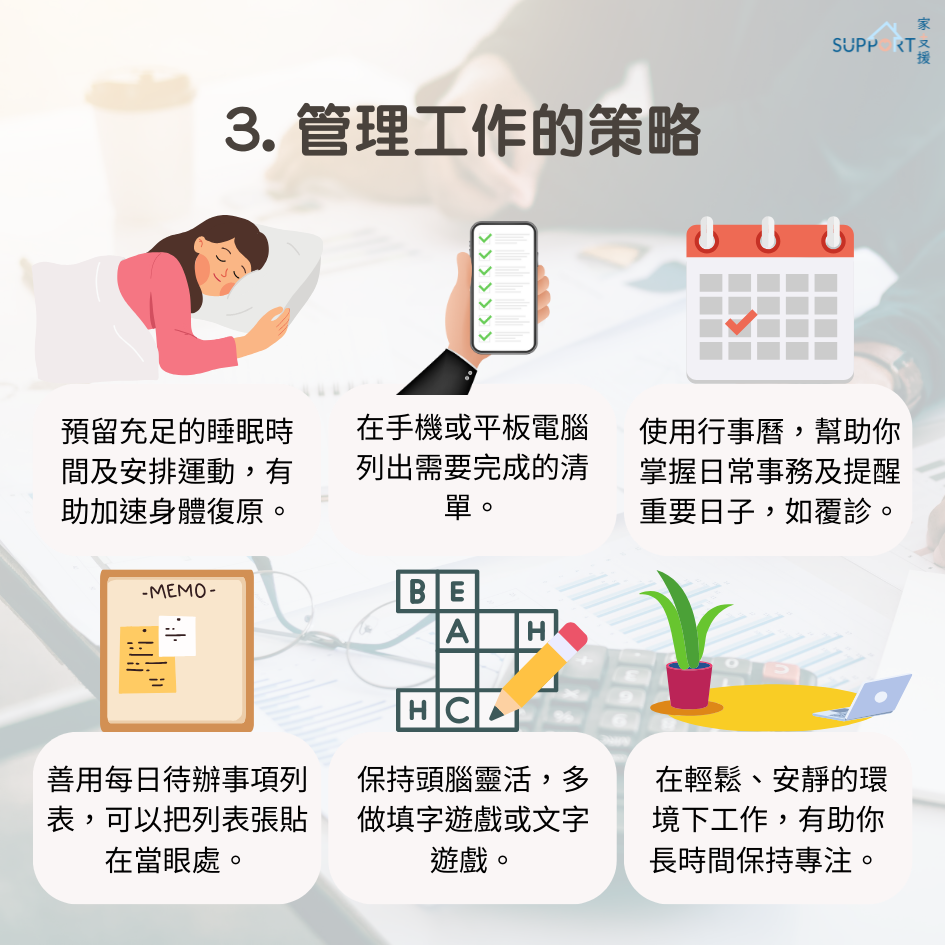
- Self-doubts are common after cancer. Once you get back, allow some time to adapt to your work.
- To better manage your job, you can do the following:
- Prioritise your sleep and exercise. These are the two most important things you can do to speed recovery. Allow adequate time for both.
- Make lists. Record things you need to do on your phone or a pad. For example, list things to buy, errands to run, phone calls to return, and even the times you need to take your medicines. Cross items off as you finish them.
- Use a planner or personal organiser. These can help you stay on top of day-to-day tasks and keep track of appointments and special days like birthdays and anniversaries.
- Start a checklist of daily reminders. For some people, this works better than a portable planer because you can hang it up in a place that is easy for you to see everyday. Put it on your refrigerator or even on your bathroom mirror so you’ll be sure to look at it several times a day.
- Sleep. Make sure you get plenty of rest.
- Keep your mind active. Do crossword puzzles and word games, or attend a class that interests you. Also allow time to relax your mind.
- Minimise distractions. Work, read, and do your thinking in an uncluttered, peaceful environment. This can help you stay focused for longer periods of time.
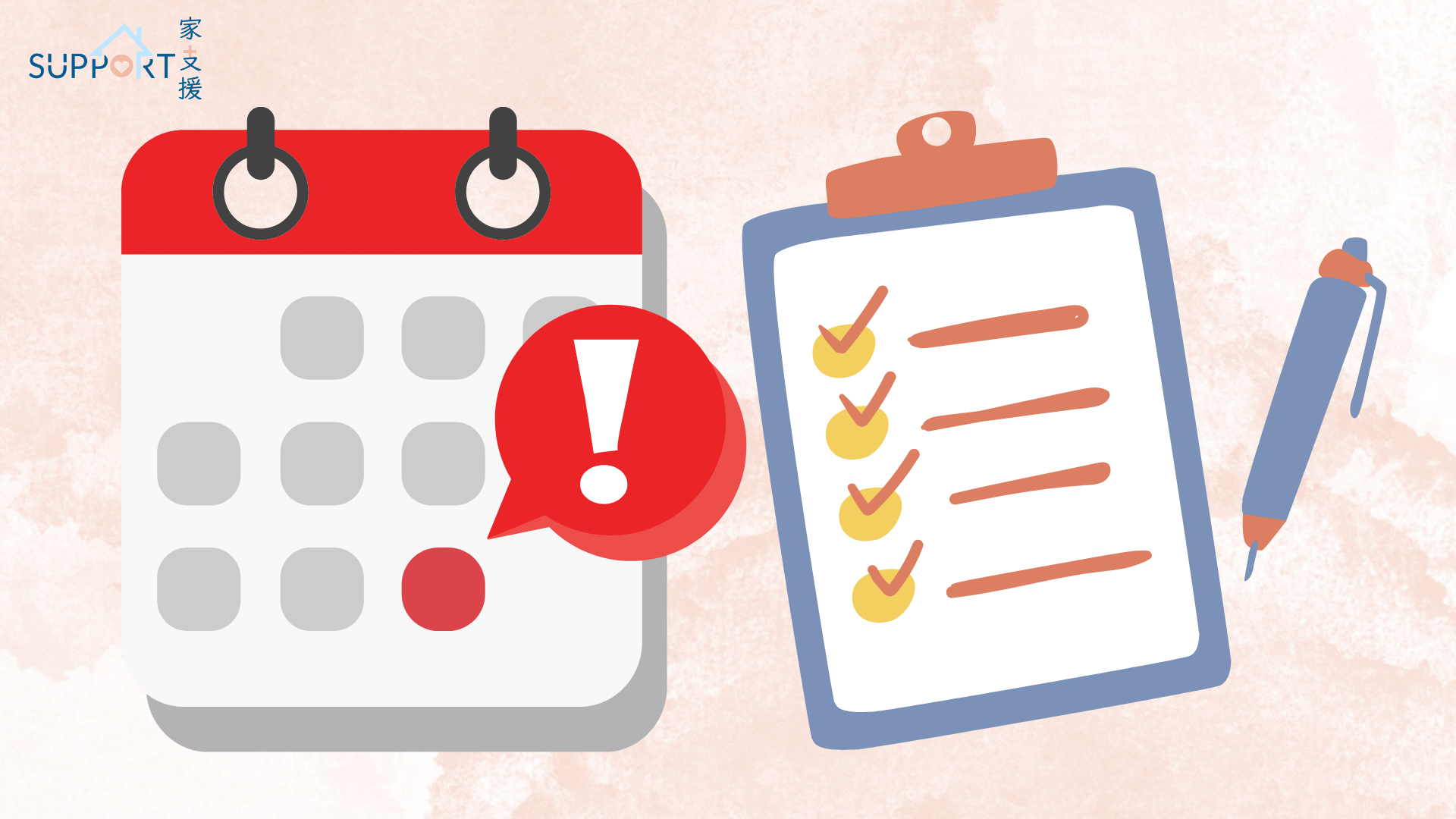
4. Common concerns about returning to work
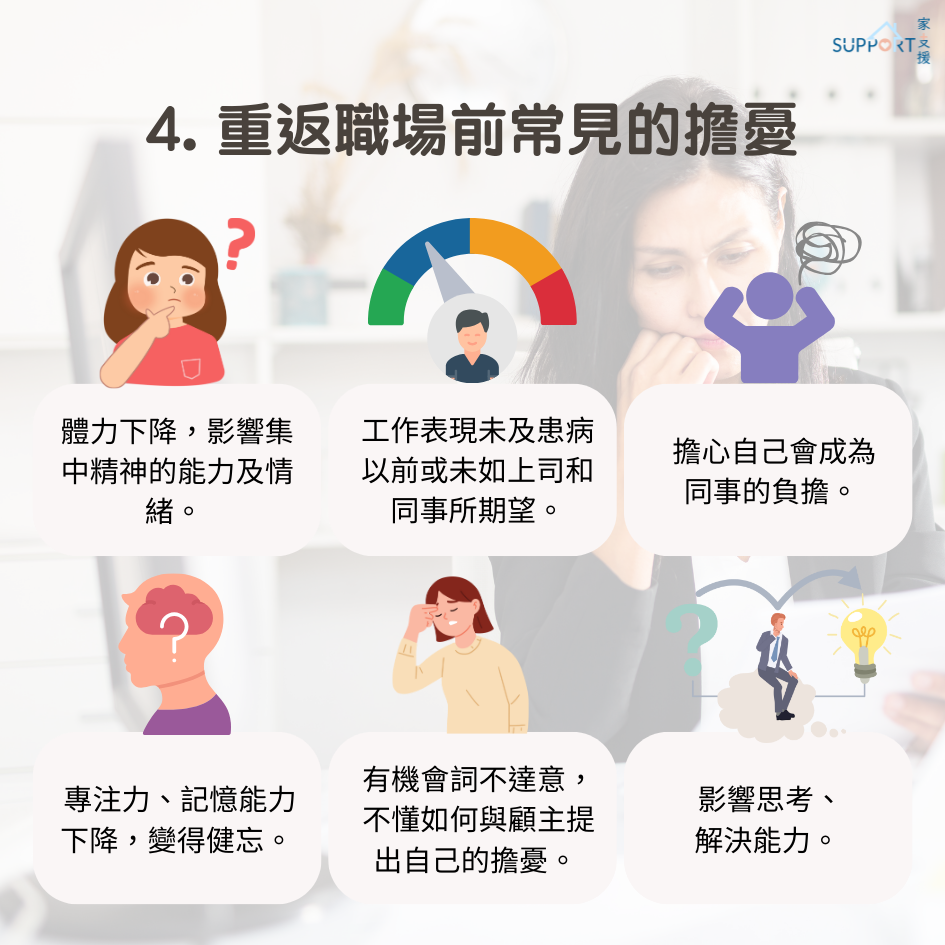
- Performance
- Changes in energy levels, ability to concentrate or focus, and mood
- Not being able to do your job as well as before cancer
- Not being able to do your job at the level that your employer (boss) or coworkers expect of you
- Not knowing what to say to people about your absence (being away)
- Not knowing how to ask for help from the people you work with
- Not knowing how to share your concerns about returning to work with your employer
- Cognitive Abilities
- Poor attention
- Limited concentration
- Memory difficulties and forgetting
- Find the right word(s) when speaking
- Thinking through and solving problems
- How to Manage these Concerns:
- Try to be patient. With time most of these difficulties will resolve as you regain your confidence. Hight level of anxiety will make the situation worse, so try not to worry.
5. Your rights as a worker
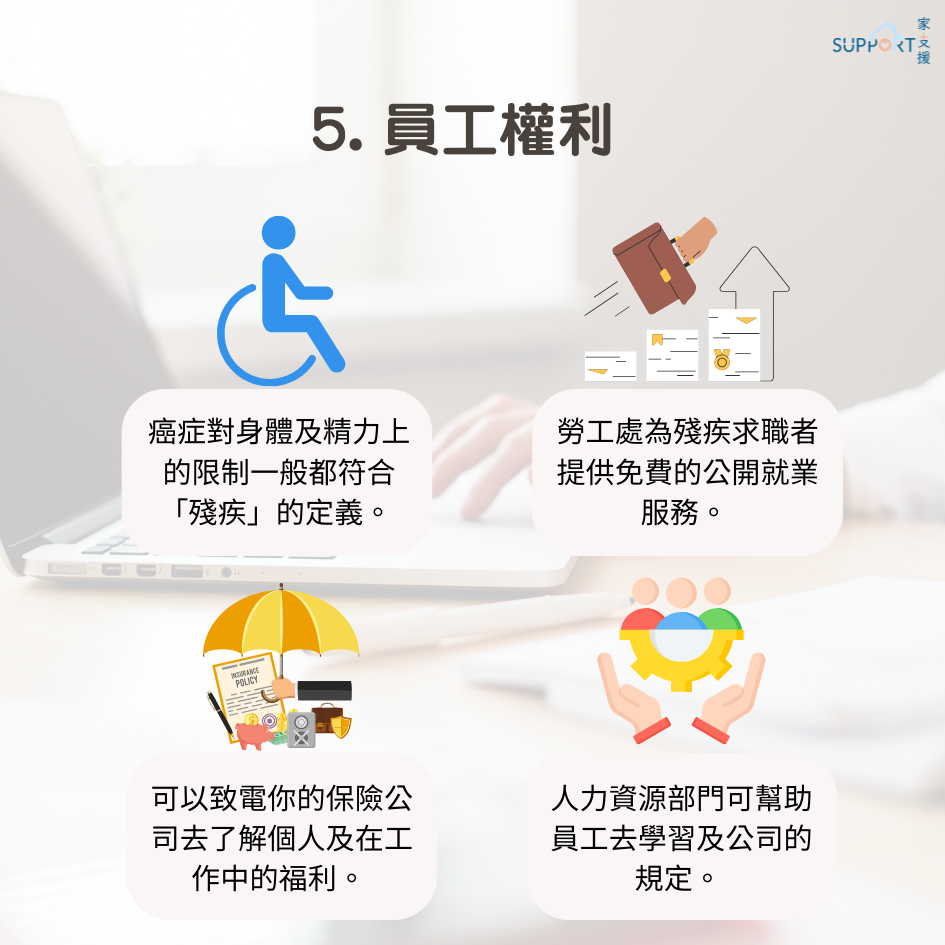
- It is important to know your legal rights in your workplace. This includes all of the things you and your employer can and cannot do by law.
- For people living with cancer, the limits cancer places on their body and energy is often thought of as having a disability.
- The Labour Department provides free service for open employment to job seekers with disabilities.
- Most workplaces have human resources (HR) departments. These places are meant to help staff learn and follow their workplace rules.
- Call your insurance company to check your benefits coverage personally and at work.
6. Early retirement
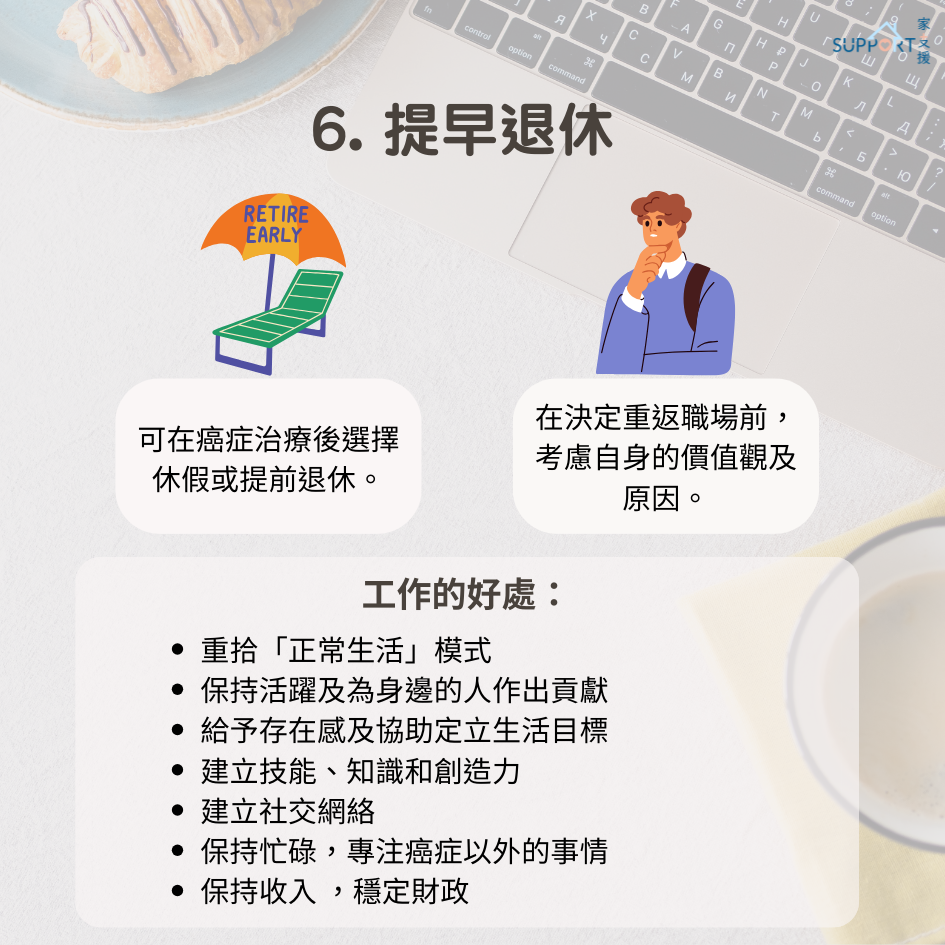
- Many people choose to take time off or enter into early retirement if they have the option.
- Before you decide about return to work, think about your values and needs for work and your reasons for not returning. Having good social network and financial security is important and work contributes to both.
- Consider the benefits of working, such as:
- Helping to re-establish a “normal life” routine
- Helping you stay active and contributing to those around you
- Helping you keep a sense of identity and purpose in your life
- Helping you build skills, knowledge and creative.
- Keep you busy and allow you to focus on things other than cancer
- Income
Reference:
Return to Work After Cancer










